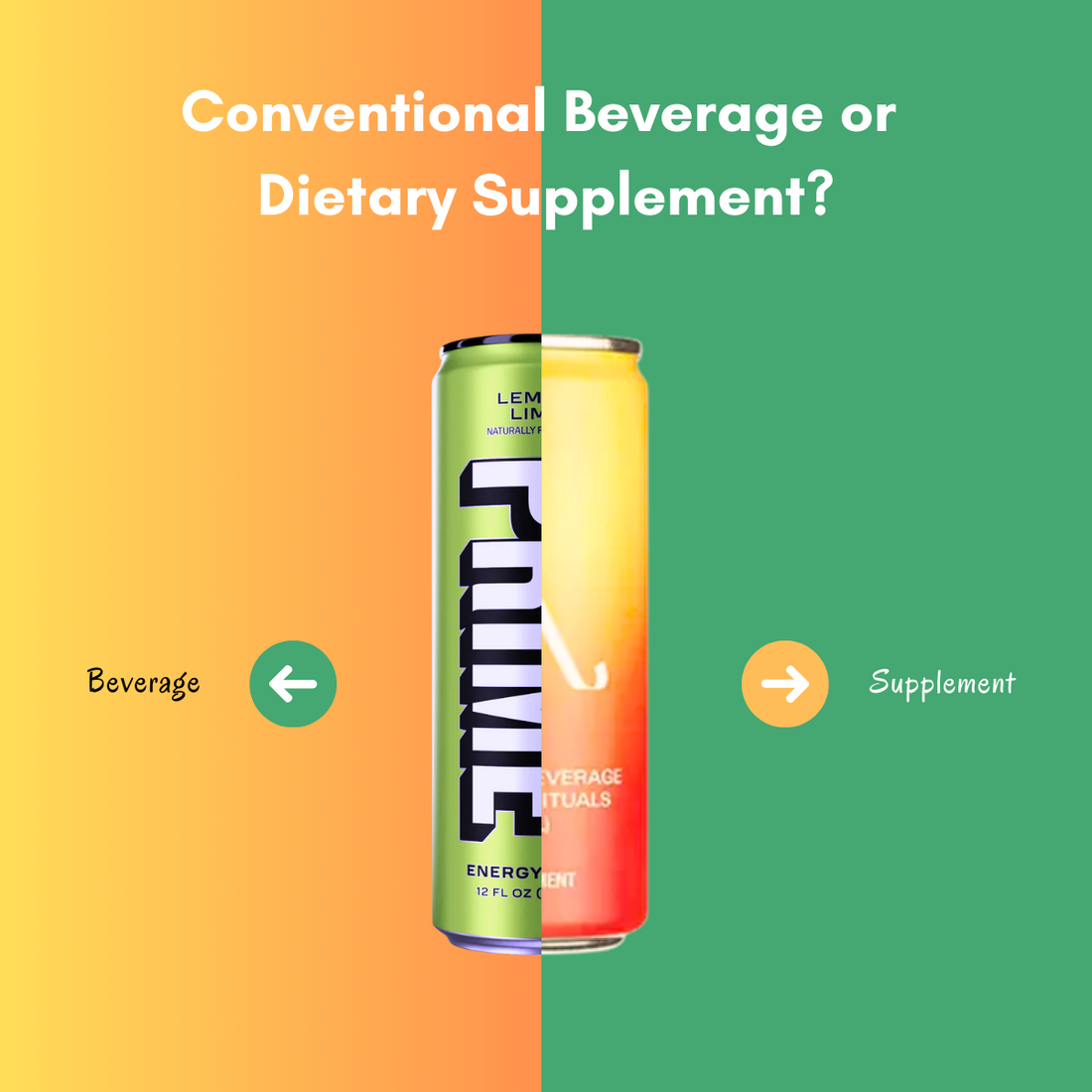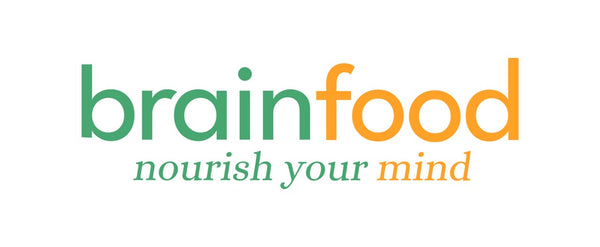
Is it a Functional ‘Food/Beverage’ or ‘Supplement’?
Share
Food bar with adaptogens? Non-alcoholic cocktail elixir? Functional drink that promises to make you feel ‘calm and collected’? These days, they all seem to be part of the booming ‘functional food & beverage’ sector. But did you know that some of these are classified as a ‘drink,’ while others are considered a dietary supplement? Can you tell which is which?
Functional beverages and snacks have exploded in popularity over the past few years, and the trend shows no signs of slowing down. As someone who’s navigated this industry as an entrepreneur, I’ve found that one of the most confusing aspects is understanding the difference between a product labeled as a ‘conventional food/beverage’ and one labeled as a ‘supplement.’ For brands, it’s more than just semantics—this distinction has serious FDA compliance implications that can affect everything from the ingredients you use to how you label your product. And for consumers, this can lead to a lot of confusion and concern about what exactly you’re consuming.
After spending plenty of time (and yes, money) working with lawyers and experts to figure this out, I wanted to share what I’ve learned to help others make sense of it all—whether you’re a brand owner or just trying to make informed choices at the grocery store.
Table of Contents
- Difference Between Conventional Food/Beverage and Supplement
- Why Is This So Confusing?
- Why Should You Care?
- For Entrepreneurs
- For Consumers
- So Which Is Better for You?
- The Bottom Line
Difference Between Conventional Food/Beverage and Supplement
Let’s start by breaking down the basics:
Conventional Food/Beverage:
- Definition: These are everyday foods and drinks that we consume regularly, like your morning orange juice or your favorite snack bar.
- Labels:
- Back Label: Conventional foods and beverages feature a "Nutrition Facts" panel.
- Front Label: Indicates the product as a "juice," "soda," "water," "seltzer," "drink," or "beverage."
- Ingredients: The FDA requires all ingredients to be Generally Recognized As Safe (GRAS), meaning they’ve been tested and deemed safe for consumption.
Supplement:
- Definition: Supplements are products intended to add nutritional value to your diet, like vitamins, minerals, or herbal extracts. These can be pills, powders, or even drinks.
- Labels:
- Back Label: Supplements feature a "Supplement Facts" panel instead of "Nutrition Facts."
- Front Label: Must include the word ‘supplement,’ such as "dietary supplement," "herbal supplement," or "beverage supplement."
- Ingredients: While supplements must be safe to consume, the FDA does not regulate the specific amounts of ingredients in the same way it does for conventional foods.
Wanna Know: How it Works
What is GRAS (Generally Recognized As Safe)?
To put it simply, GRAS stands for "Generally Recognized As Safe." When an ingredient is GRAS certified, it means experts agree that it’s safe to use in food, based on scientific research and a history of safe use. The FDA gives this certification to ingredients that have been proven safe in the amounts we typically consume in food and drinks.
If an ingredient is GRAS certified, it can be used in conventional foods and beverages without extra regulations. For example, ingredients like sugar, salt, or certain vitamins are GRAS certified. Companies can use them freely in everyday food products, as long as they stick to safe levels.
Why don’t supplements need to be GRAS?
Unlike food, dietary supplements don’t have to go through the GRAS process. The FDA assumes that dietary supplements (like vitamins, minerals, or herbs) are intended for people seeking specific health benefits, often in higher doses than in conventional food. Instead of needing to be GRAS, supplements just need to be safe for consumers to use. However, there’s less strict regulation over the exact amounts used or how effective the ingredients are.
In short, GRAS certification ensures an ingredient is safe for general, everyday consumption in food. Supplements don’t need GRAS certification because they’re intended for targeted health uses, and the FDA allows consumers to make more personal decisions about taking them. This is why it’s important to trust reputable brands when buying supplements, as they’re not reviewed as strictly as conventional foods.
Why Is This So Confusing?
The line between food and supplements can be incredibly thin, especially when it comes to functional beverages. This is because functional foods, in general, are used in a way that can be ‘preventative’ or for a specific health use (e.g., supporting brain health or boosting vitamin intake).
The two biggest factors that usually distinguish one from the other are:
- Ingredient Type
- Ingredient Quantity
Ingredient Type:
Each ingredient in a conventional food/beverage must be GRAS certified (the manufacturer of the ingredient receives this certification). Some traditional ingredients used in other countries, like certain herbs, might not be GRAS certified simply because they’re newer to the U.S. market, not because they’re unsafe.
Ingredient Quantity:
Another distinction that can confuse people is the level of the ingredient used—even for common vitamins and minerals. For example, take that energy drink at your local store—even if it only contains caffeine and vitamins, it might actually be a dietary supplement if the vitamin level used is high enough. Technically, if it’s a supplement, the brand isn’t supposed to call it a ‘drink’—it should be labeled as a ‘drink supplement.’ But in reality, this rule is often overlooked, adding to the confusion.
Why Should You Care?
For Entrepreneurs:
- FDA Compliance: Whether your product is classified as a conventional food/beverage or a supplement impacts your FDA compliance requirements. Not complying with these rules can lead to serious legal and financial consequences.
One big mistake brands still make today is calling their product a 'beverage' without indicating the 'supplement' part. This is not just the case for the can label; nowhere on the website should a product be advertised as only a ‘functional drink’ - it should mention it is a drink or dietary supplement. Even though many brands today break this rule (looking at you Kin & Tru Drink), this can lead to legal and financial consequences with the FDA, if the FDA decides to review the product.
- Retail Roadblocks: Some stores will check that your label and ingredients follow FDA compliance regulations. For instance, Whole Foods will ask for GRAS certificates, and without them, you won’t be allowed to sell your product there.
For Consumers:
- Making Informed Choices: Understanding whether something is a conventional food/beverage or a supplement helps you make better choices. Supplements might contain higher concentrations of certain ingredients, which could have different effects on your body.
- Awareness and Safety: Knowing that something is a ‘drink supplement’ rather than just a ‘drink’ can help you be more mindful of how much you consume. But don’t worry—if something is labeled as a dietary supplement, it doesn’t mean it’s unsafe. The FDA still requires that the ingredients be safe to consume.
So Which Is Better for You—a Functional Food/Drink or a Supplement?
The distinction between a functional food/beverage and a dietary supplement doesn’t necessarily mean one is better or worse than the other. What’s more important is understanding what you’re consuming and whether it fits into your lifestyle.
For example, Ashwagandha just became GRAS certified a few years ago, but it’s been safely used for centuries in Eastern medicine.
Or take Kin Euphorics—a non-alcoholic functional beverage co-founded by Bella Hadid—it’s labeled as a dietary supplement because of ingredients like GABA (an amino acid). Similarly, certain protein bars that contain high levels of herbs or adaptogens must be labeled as supplements if those ingredients haven’t been through the GRAS process.
The Bottom Line
Both conventional foods/beverages and dietary supplements play a significant role in the functional food and beverage space.
For entrepreneurs, it’s crucial to label your products correctly to avoid confusing an already thin line and ensure FDA compliance.
For consumers, whether something is labeled as a ‘functional food/beverage’ or a ‘dietary supplement’ might not always matter. What matters more is knowing what you’re eating or drinking and making sure it aligns with your health goals. And always choose trusted sources and brands, especially when it comes to supplements.
